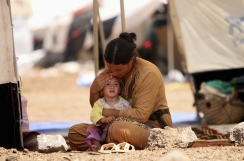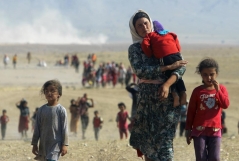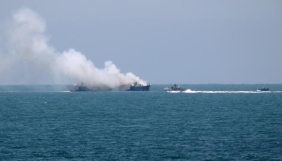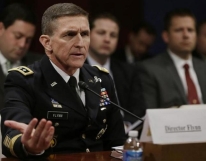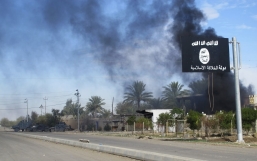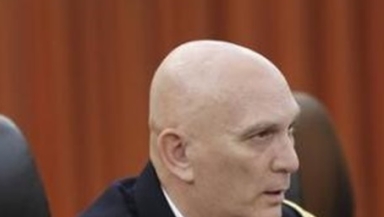
Battling the extremist group Islamic State will take not just up to five years as the Obama administration envisioned but one or two decades, a top officer of the US Army said.
General Ray Odierno, the Army chief of staff, made the statement even as a UK-based think tank reported that the ISIS-controlled territory in Iraq and Syria has shrunk by almost 10 percent after the jihadists suffered "significant" losses.
Odierno, who is set to retire in August, said he believes the campaign against the jihadist ISIS, which seeks to carve out a caliphate in existing war-torn countries in the Middle East, will last "10 to 20 years," Sputnik reported.
"In my mind, ISIS is a 10- to 20-year problem, it's not a two-year problem," said the general. "Now, I don't know what level it will be a problem, but it's a long-term problem."
Odierno's estimation, the longest timetable laid out so far by a Pentagon official, is contrary to what the White House has predicted, which said the fight will only last for a few years.
"The administration has said 'three to five' years. I think in order to defeat ISIL, it's going to take longer than that," Odierno said.
"This movement is growing right now, and so I think it's going to take us a bit longer than we originally thought," he added.
The neutralisation of the Islamist group cannot also purely come in military means, said the general, who maintained that it must be a multi-faceted campaign because the issue also involves different aspects, he said.
"To defeat them is not just a military issue. It is an economic issue. It is a diplomatic issue. It is an issue of moderate versus extremists and it is about also, potentially, having the capability to root them out of the places they now hold in Iraq and Syria," Odierno said.
The Army is "not going to be able to do everything we're being asked to do" because of budget cuts, he said.
He also aired a view similar to that of US President Barack Obama on local forces having to primarily fight ISIS on the ground.
"Others should do this," he said. "I believe the nations in the Middle East need to solve this problem. We should be helping them to solve this problem."
Relatedly, UK-based think tank IHS said in a study published on Friday that the ISIS-controlled territory in Iraq and Syria has shrunk by almost 10 percent as battles won by the extremist group in Palmyra and Ramadi were counterbalanced with "significant" losses elsewhere.
The ISIS territory now only measures about 82,940 square kilometers or about the size of Austria, wrote Bloomberg.
The losses in territory, particularly in north Syria near the Turkish border and in Iraq around the city of Tikrit, were the results of the offensives undertaken by Kurdish and Sunni forces.
One major loss was the capture of the Tal Abyad border crossing, which "was the Islamic State's main access point to the Turkish border from its de-facto capital in Raqqa," report author Columb Strack said.
Meanwhile, ISIS has claimed responsibility for a blast in Iraq which killed at least 86 people, CNN wrote.
The detonation, which involved a truck loaded with explosives, also wounded 116 others on Friday evening at an outdoor market in Khan Bani Saad, around 35 kilometers north of Baghdad in Iraq, according to police and health officials in Baquba.
The attack, carried out by a suicide bomber as confirmed by Ali al-Tamimi, the general director of the Diyala Health Directorate, as well as two police, was one of the deadliest attacks by ISIS in recent months in Iraq.










